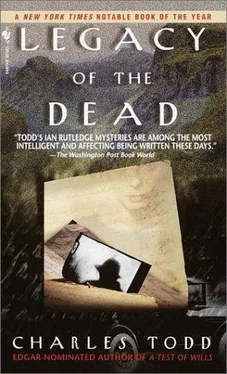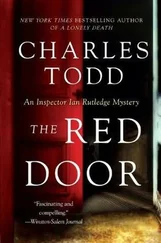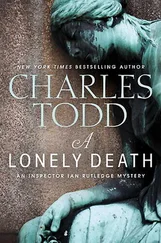Charles Todd - Legacy of the Dead
Здесь есть возможность читать онлайн «Charles Todd - Legacy of the Dead» весь текст электронной книги совершенно бесплатно (целиком полную версию без сокращений). В некоторых случаях можно слушать аудио, скачать через торрент в формате fb2 и присутствует краткое содержание. Жанр: Полицейский детектив, на английском языке. Описание произведения, (предисловие) а так же отзывы посетителей доступны на портале библиотеки ЛибКат.
- Название:Legacy of the Dead
- Автор:
- Жанр:
- Год:неизвестен
- ISBN:нет данных
- Рейтинг книги:5 / 5. Голосов: 1
-
Избранное:Добавить в избранное
- Отзывы:
-
Ваша оценка:
- 100
- 1
- 2
- 3
- 4
- 5
Legacy of the Dead: краткое содержание, описание и аннотация
Предлагаем к чтению аннотацию, описание, краткое содержание или предисловие (зависит от того, что написал сам автор книги «Legacy of the Dead»). Если вы не нашли необходимую информацию о книге — напишите в комментариях, мы постараемся отыскать её.
Legacy of the Dead — читать онлайн бесплатно полную книгу (весь текст) целиком
Ниже представлен текст книги, разбитый по страницам. Система сохранения места последней прочитанной страницы, позволяет с удобством читать онлайн бесплатно книгу «Legacy of the Dead», без необходимости каждый раз заново искать на чём Вы остановились. Поставьте закладку, и сможете в любой момент перейти на страницу, на которой закончили чтение.
Интервал:
Закладка:
“What if-for very good reasons-she can’t step forward?”
Elliot picked up a book and put it down again, signaling that the interview was over. “Then she is an unnatural mother. A tigress will defy death for her young. No, I am satisfied beyond a shadow of a doubt that the poor woman died at Fiona MacDonald’s hands, giving her son life. May God rest her soul!”
As the young woman-the housekeeper, he thought- saw him to the door, Rutledge paused on the threshold and asked, “Do you know Fiona MacDonald?”
She hesitated, casting an eye uneasily over her shoulder and down the passage before saying, “Yes, indeed. She and Miss MacCallum-her aunt-were very good to me when I was ill. It was-I nearly died. Fiona sat beside me and held my hand through the night, until I was out of danger the next morning.”
It was on the tip of his tongue to ask what she had been ill of. But the pleading look in her eyes stopped him. She had taken her courage in both hands to put in a good word for the accused-a kindness for a kindness.
“Do you know her-um-child?”
“Oh, indeed. Such a pretty lad! And well-mannered. I worry what’s to become of Ian now. But no one will tell me.”
“He’ll be well cared for. I’ll see to that.” The words came out of their own volition. He hadn’t meant to say them.
Hamish growled something that Rutledge didn’t catch. He let it go.
“I’d like to think so. Such a shame that Miss MacCallum isn’t alive. She’d have set this all to rights. She was that sort of person. It was Miss MacCallum who found this position for me. Mr. Elliot’s housekeeper had died of pleurisy.”
Rutledge would have liked to ask Hamish about Ealasaid MacCallum. But there had been no mention of her the long night that he and the condemned man had spent talking in the guttering light of a candle.
“Is Mr. Elliot a good man to work for?” Rutledge asked instead, curious.
The young woman’s face flushed blotchily. “He does God’s work. I try to be as quiet as I can. But I’m sometimes clumsy and in the way.”
Which no doubt meant that Elliot was a demanding bastard on his own turf and made her life wretched. Rutledge found Hamish agreeing to that. Hamish, apparently, had seen very little to approve of in the minister.
“Do you live here?” Rutledge asked, concerned for her.
“That wouldn’t be fitting! Mr. Elliot is a widower. I have a room at the top of the road there, above the milliner’s shop. Miss Tait offered it to me.” She pointed with a small, thin finger.
“Were you surprised when the rumors began about Miss MacDonald?”
“I never was told them,” she said naively. “Not until much later. People don’t confide in me, not often.”
No, this writer of poisonous letters appeared to have chosen each recipient with an eye to inflicting the most damage on Fiona MacDonald’s reputation. The thin, frightened housekeeper to the minister was not likely to sway the citizens of Duncarrick with her views on any subject.
“Thank you-I’m afraid I don’t know your name…” He left the sentence unfinished.
“Dorothea MacIntyre, sir,” she told him shyly. “Will that be all, sir?”
“Yes. If-er-Mr. Elliot should ask, I wanted to know only if you’d received one of the letters.”
“I’m grateful, sir!” She closed the door softly behind him as he stepped out into the street. The sacrificial lamb, he thought. Too poor to be anything but dependent on the generosity of others, afraid of her shadow, and well aware of her duty, having had a lifetime of charity to teach it to her.
Rutledge went back the way he’d come, passed The Ballantyne without stopping, and searched out the milliner’s shop he’d seen the day before. Where Dorothea MacIntyre lived.
A silver bell rang genteelly as he opened the door. The woman arranging hats on a stand in the back looked up, then walked briskly to meet him. “May I help you, sir?” She cast a swift glance over her merchandise, and then waited with folded hands for him to speak.
It was a woman’s shop, intimate and yet vividly decorated with almost Parisian flair, oddly out of tune with Duncarrick. Orange and peach and shades of lavender, with a strong pink thread drawing it all together.
Hamish said, “I’d no’ like to hear what Mr. Elliot thinks o’ the colors.” He himself seemed to be of two minds about them.
The shop carried lace collars, gloves in kid or cotton, stockings, some twenty or so hats in every style from drab to elegant, handkerchiefs with dainty edging, shirtwaists, and what Rutledge took to be undergarments, discreetly folded into brightly painted boxes set along one wall.
The woman herself, tall and boldly attractive, seemed the antithesis of Dorothea MacIntyre. Rutledge wondered if Ealasaid MacCallum might have found a haven here for the girl, someone who would play dragon at the gate.
“Inspector Rutledge,” he said, “Scotland Yard. I won’t keep you. I’m searching for the mother of the child Fiona MacDonald calls”-he hesitated-“Ian MacLeod. I’m asking young women who might have known her if she had at any time confided in them.”
“Are you, indeed?” Her eyes were angry suddenly. “Well, if Fiona had seen fit to confide in me, why should I rush to tell you whatever might have been said between us? It’s ridiculous to expect anything of the kind. You’re a policeman. You should be able to do your duty without my help!”
Hamish said, “Aye, but then, she doesn’t know you, does she? Or how well or ill you do your duty!”
“I’m not,” Rutledge said gently, “looking for evidence to convict her. Only for evidence of the child’s parentage so that he can be returned to his mother’s family. Or, failing that, to his father’s.”
She turned away. “I have better things to do with my time than provide you with local gossip. I don’t particularly like Fiona MacDonald. Anyone will tell you that. On the other hand, I think she’s been wretchedly treated, and I’m not going to be one of those throwing stones.”
“Why didn’t you like her?”
“I thought we might become allies. We were alike in one thing, at least. We didn’t squeeze dutifully into the rigid mold of Duncarrick. Silly notion, as it turned out. She kept to herself. I suppose that’s understandable in light of what’s happened since, but at the time I felt-betrayed. As if she’d turned her back on me, preferring instead to ingratiate herself with her aunt’s friends. Apparently, she didn’t succeed very well, did she? In the end they turned their backs on her!”
“Did you receive one of those anonymous letters?”
Her laughter pealed out, harsh and startling in the ambiance of the shop. “I am more likely to be the subject than the recipient of such things. In point of fact, I’ve sometimes wondered why they targeted Fiona rather than me. There are people in this town who would gladly see the back of me.” She gestured at the walls and the hangings that shut off the back room of the shop for privacy, their flamboyance almost a defiance. “But I’m trapped here. I inherited the shop, and I don’t have the money to walk away from Duncarrick and start again elsewhere. I lived in London for a time- worked there before the war and for two years of the fighting, learning my craft from a Frenchwoman who had come from Paris to design hats in London. She closed her shop- no one had a taste for extravagant hats, no one wore them anymore, the war changed that. Women made do with what they had or refurbished them themselves. And I came here. This place had stood empty for nearly three years-it had been a haberdashery.” With an angry shake of the head, she added, “Why am I telling you this!”
Hamish said, “It’s the way you listen, I’m thinking. People forget you’re a policeman-I did mysel’ many and many a time!”
Читать дальшеИнтервал:
Закладка:
Похожие книги на «Legacy of the Dead»
Представляем Вашему вниманию похожие книги на «Legacy of the Dead» списком для выбора. Мы отобрали схожую по названию и смыслу литературу в надежде предоставить читателям больше вариантов отыскать новые, интересные, ещё непрочитанные произведения.
Обсуждение, отзывы о книге «Legacy of the Dead» и просто собственные мнения читателей. Оставьте ваши комментарии, напишите, что Вы думаете о произведении, его смысле или главных героях. Укажите что конкретно понравилось, а что нет, и почему Вы так считаете.












